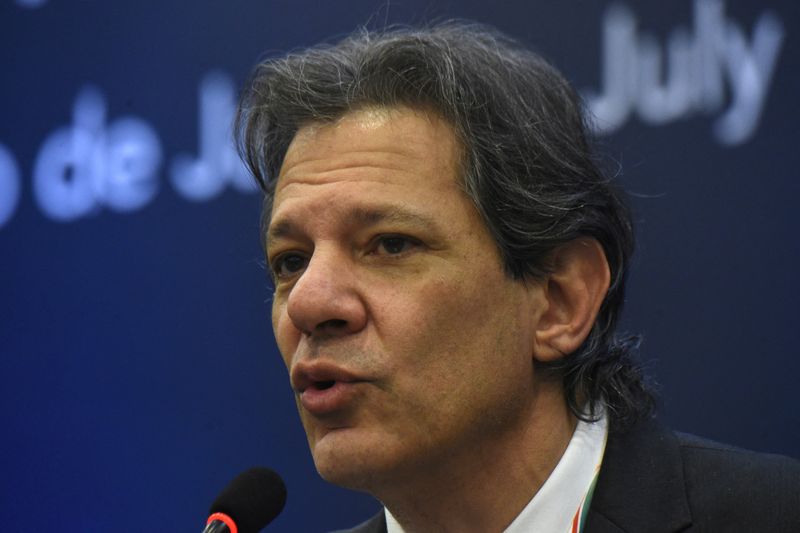By Marcela Ayres
BRASILIA (Reuters) -Brazil's Finance Minister said on Wednesday the government has concluded talks on new measures to strengthen the fiscal framework, seen as crucial to improve the valuation of the country's risk assets, which have been hit by fiscal concerns and volatility linked to the U.S. election.
Following Republican Donald Trump's White House victory, the Brazilian real opened down more than 1.7% against the U.S. dollar, but the currency reversed losses throughout the morning to end up trading up more than 1% in the afternoon, supported by Brazilian Finance Minister Fernando Haddad's remarks.
Speaking to reporters early on Wednesday, Haddad noted that global tensions had increased, fueled by remarks made during the Republican's campaign. However, he pointed out that Trump's post-victory speech was more moderate.
"We need to wait a bit and focus on taking care of our own house - taking care of Brazil, our finances, and the economy - to be as little affected as possible, whatever the external scenario may be," he said.
Even before the U.S. election results were announced, Trump's rhetoric was already viewed as more detrimental to emerging markets due to potential inflationary pressures arising from his strong support for higher import tariffs, tax cuts, and immigration restrictions.
This approach boosts the U.S. dollar against other currencies and fuels expectations of higher interest rates in the world's largest economy, drawing resources away from other markets.
Haddad stressed that discussions that President Luiz Inacio Lula da Silva had requested with other ministries to review the new fiscal measures the country will announce have been completed.
"All the ministers are well aware of our task ahead to reinforce the fiscal framework and ensure predictability and sustainability of finances in the medium and long term," Haddad said.
"I believe there is consensus on the principle," he added, without providing details on the package's content.
Reuters reported on Tuesday that the government is preparing measures to curb spending, including a proposal to cap health and education expenses under the general limit already applied to other expenditures.

Haddad said Lula will submit the measures to Congress once he is informed that work by the Chief of Staff's office, along with the Finance and Planning ministries, has been completed.
However, he noted that the leftist leader will possibly discuss the measures with the heads of the Senate and Lower House before taking that step.
